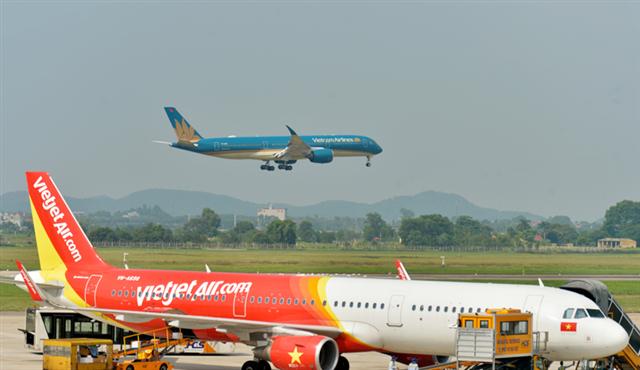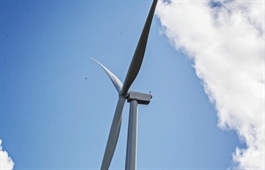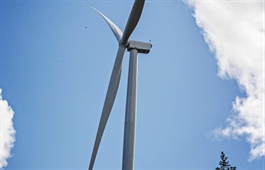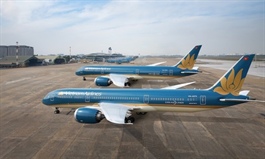Vietnam aviation industry set to suffer losses of US$650 million in 2021
Vietnam aviation industry set to suffer losses of US$650 million in 2021
To further stimulate demand, airlines are forced to offer big promotions, which in turn contribute to incurring greater losses right in the peak season.
In 2021, the outlook for local airlines continues to remain bleak as the aviation industry is set to suffer losses of over VND15 trillion (US$650 million).

Working capital is currently the most urgent issue for airlines. Photo: Pham Hung
|
The figure showed a slight improvement from the losses of VND18 trillion (US$778 million) last year, when the industry faced severe consequences from three Covid-19 outbreaks in Vietnam.
The Vietnam Aviation Business Association (VABA) made the forecast in a report submitted to the Ministry of Planning and Investment (MPI), citing ongoing suspension of international flight routes amid the Covid-19 pandemic as main reason.
According to the VABA, airlines currently operate international flights to repatriate citizens, transport experts and transport cargoes.
In the first two months of 2021, the volume of international air passengers stood at 66,600, less than half the number in the same period of 2019.
Meanwhile, airlines’ revenue during the Tet holiday, Vietnam’s biggest festive period in a year, also plunged by 70%-80% against last year’s period.
“To further stimulate demand, airlines are forced to offer big promotions, which in turn contribute to incurring greater losses right in the peak season,” noted the VABA’s report.
Not only airlines, firms operating in the aviation industry also face similar situation with a sharp decline in revenue.
The VABA noted working capital is currently the most urgent issue for airlines, as aviation is one of the hardest-hit sectors with almost no demand for flight whenever there is a Covid-19 resurgence.
“Declining revenue for a long period has caused financial instability for airlines,” it added.
As airlines had restructure investment activities and financial operations to cope with severe Covid-19 impacts last year, they are now in a dire situation given the low income during the Tet period in 2021, the VABA asserted.
Airlines call for credit aid support
Airlines are asking for credit aid program from the government similar to the current supporting program for national flag carrier Vietnam Airlines. Specifically, budget carrier Vietjet is looking for a loan of VND4-5 trillion (US$172-216 million) during the 2021-23 period with preferential rates of 4% per annum. Bamboo Airways also asks for a long-term loan of VND5 trillion (US$216 million) with 0% interest rate and other VND5 trillion from commercial banks with low interest rates.
Airlines also suggested the government should further slash the environmental protection tax on fuel to VND900-1,000 (US$0.039-0.043) per liter; delay payment for corporate income and added-value taxes and land rental fees, among others, until the end of 2021.
The National Assembly last year authorized the State Bank of Vietnam (SBV), the country’s central bank, to help Vietnam Airlines ease the Covid-19 fallout.
Under the draft circular, the SBV would provide refinancing loans worth a maximum of VND4 trillion (US$172.85 million) for credit institutions being the carrier’s lenders.
At the same time, Vietnam Airlines, in which the state currently holds an 86.19% stake via the Commission for State Capital Management (CSCM), gets the permission to sell additional shares of VND8 trillion (US$345.68 million) to existing shareholders to raise its registered capital. As such, the government would assign its investment arm State Capital Investment Corporation (SCIC) to buy Vietnam Airlines shares.
On this issue, Nguyen Duc Kien, head of Prime Minister Nguyen Xuan Phuc’s Economic Advisory Council said it is a normal practice that the state, a major shareholder of Vietnam Airlines, is trying to aid the flag carrier.
“As state capital in the airline is public asset, the government is responsible for managing and using the fund efficiently,” Kien said.
“Any owners would have to save their struggling companies, and this is different from a supporting policy for the whole sector,” he added.






















